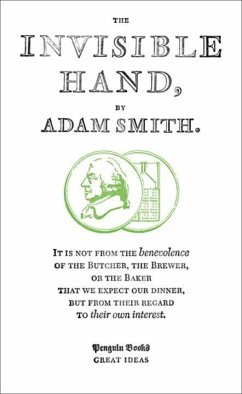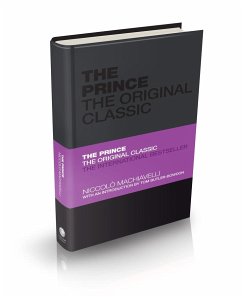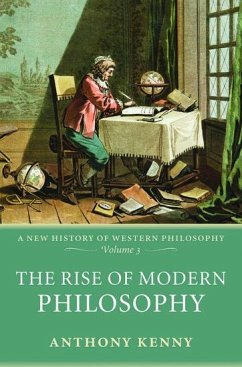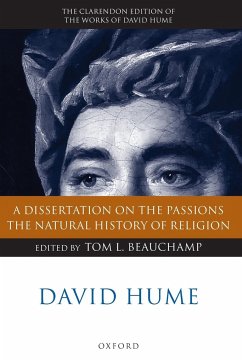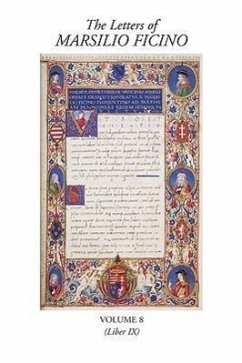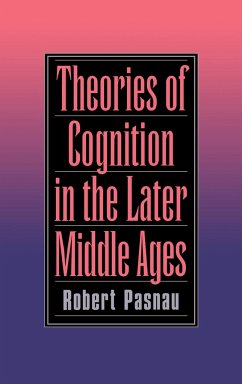Nicht lieferbar
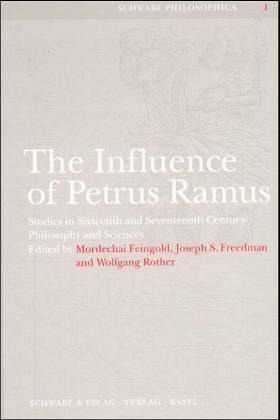
The Influence of Petrus Ramus
Studies in sixteenth and seventeenth century philosophy and sciences
Mitarbeit: Feingold, Mordechai; Freedman, Joseph S.; Rother, Wolfgang
Versandkostenfrei!
Nicht lieferbar
Contributions by Elizabethanne Boran (Dublin), Thomas Elsmann (Bremen), Mordechai Feingold (Cambridge, Mass.), Joseph S. Freedman (Montgomery), Nick Jardine (Cambridge), Ian Maclean (Oxford), Kees Meerhoff (Amsterdam), Guido Oldrini (Bologna), Riccardo Pozzo (Washington), Wolfgang Rother (Basel), Alain Segonds (Paris), Erland Sellberg (Stockholm), Theo Verbeek (Utrecht).The volume originated in a workshop, held in the Bibelsaal of the Herzog August Library of Wolfenbüttel and devoted to an examination of the influence of Petrus Ramus. The papers, revised for publication, deal with the diverse...
Contributions by Elizabethanne Boran (Dublin), Thomas Elsmann (Bremen), Mordechai Feingold (Cambridge, Mass.), Joseph S. Freedman (Montgomery), Nick Jardine (Cambridge), Ian Maclean (Oxford), Kees Meerhoff (Amsterdam), Guido Oldrini (Bologna), Riccardo Pozzo (Washington), Wolfgang Rother (Basel), Alain Segonds (Paris), Erland Sellberg (Stockholm), Theo Verbeek (Utrecht).
The volume originated in a workshop, held in the Bibelsaal of the Herzog August Library of Wolfenbüttel and devoted to an examination of the influence of Petrus Ramus. The papers, revised for publication, deal with the diverse use made of Ramus both by followers and adversaries in the religious and scholarly controversies that raged throughout (mainly) Protestant Europe during the late sixteenth and early seventeenth centuries. In terms of organization the volume is divided along regional and thematic issues. The impact of Ramist ideas on Calvinism informs a first group of papers concentrating on various Reformed territories: Switzerland (Wolfgang Rother), the Netherlands (Theo Verbeek), Bremen and Gdansk (Thomas Elsmann). A second group examines Lutheran responses to Ramus: Joseph Freedman analyzes Melanchthon's view, Riccardo Pozzo evaluates the criticism by the Helmstedt Aristotelians, and Erland Sellberg scrutinizes Ramus' reception at the Swedish universities. Two further contributions probe the Ramist debate in the British Isles: in England (Mordechai Feingold) and in Ireland (Elizabethanne Boran). The section devoted to thematic issues places Ramus within Renaissance disciplines where his impact was most keenly felt: logic and literature (Kees Meerhoff), historiography and jurisprudence (Guido Oldrini), law and medicine (Ian Maclean), and astronomy (Nicholas Jardine and Alain Segonds).
Schwabe Philosophica. Herausgegeben von Helmut Holzhey und Wolfgang Rother:
Als Forum für philosophiegeschichtliche Arbeiten bilden die Schwabe Philosophica eine flankierende Reihe zum neuen Grundriss der Geschichte der Philosophie. Die einzelnen Bände sind am Qualitätsstandard des Grundrisses orientiert; sie zeichnen sich durch ein hohes wissenschaftliches Niveau, gründliche historische Information und Dokumentation sowie eine klare, ausgewogene und ansprechende Darstellung aus. In methodischer Hinsicht kommen verschiedene Ansätze eigenständig zur Geltung. Die Reihe umfasst sowohl Monographien als auch Sammelwerke.
Durch die Bündelung von philosophiegeschichtlichen Arbeiten in einer Reihe, die im gleichen Verlag wie der Grundriss erscheint und sich an dessen konzeptionelle Vorgaben anlehnt, soll die Position der durch den Grundriss repräsentierten methodischen Ausrichtung innerhalb der philosophischen Forschung und Lehre gestärkt werden.
Die Nähe zum Grundriss wird auch durch die beiden Herausgeber gewährleistet, die seit vielen Jahren in verschiedener Funktion an diesem Projekt tätig sind und sowohl ihre philosophiehistorische wie wissenschaftlich-redaktionelle Kompetenz mit einbringen.
The volume originated in a workshop, held in the Bibelsaal of the Herzog August Library of Wolfenbüttel and devoted to an examination of the influence of Petrus Ramus. The papers, revised for publication, deal with the diverse use made of Ramus both by followers and adversaries in the religious and scholarly controversies that raged throughout (mainly) Protestant Europe during the late sixteenth and early seventeenth centuries. In terms of organization the volume is divided along regional and thematic issues. The impact of Ramist ideas on Calvinism informs a first group of papers concentrating on various Reformed territories: Switzerland (Wolfgang Rother), the Netherlands (Theo Verbeek), Bremen and Gdansk (Thomas Elsmann). A second group examines Lutheran responses to Ramus: Joseph Freedman analyzes Melanchthon's view, Riccardo Pozzo evaluates the criticism by the Helmstedt Aristotelians, and Erland Sellberg scrutinizes Ramus' reception at the Swedish universities. Two further contributions probe the Ramist debate in the British Isles: in England (Mordechai Feingold) and in Ireland (Elizabethanne Boran). The section devoted to thematic issues places Ramus within Renaissance disciplines where his impact was most keenly felt: logic and literature (Kees Meerhoff), historiography and jurisprudence (Guido Oldrini), law and medicine (Ian Maclean), and astronomy (Nicholas Jardine and Alain Segonds).
Schwabe Philosophica. Herausgegeben von Helmut Holzhey und Wolfgang Rother:
Als Forum für philosophiegeschichtliche Arbeiten bilden die Schwabe Philosophica eine flankierende Reihe zum neuen Grundriss der Geschichte der Philosophie. Die einzelnen Bände sind am Qualitätsstandard des Grundrisses orientiert; sie zeichnen sich durch ein hohes wissenschaftliches Niveau, gründliche historische Information und Dokumentation sowie eine klare, ausgewogene und ansprechende Darstellung aus. In methodischer Hinsicht kommen verschiedene Ansätze eigenständig zur Geltung. Die Reihe umfasst sowohl Monographien als auch Sammelwerke.
Durch die Bündelung von philosophiegeschichtlichen Arbeiten in einer Reihe, die im gleichen Verlag wie der Grundriss erscheint und sich an dessen konzeptionelle Vorgaben anlehnt, soll die Position der durch den Grundriss repräsentierten methodischen Ausrichtung innerhalb der philosophischen Forschung und Lehre gestärkt werden.
Die Nähe zum Grundriss wird auch durch die beiden Herausgeber gewährleistet, die seit vielen Jahren in verschiedener Funktion an diesem Projekt tätig sind und sowohl ihre philosophiehistorische wie wissenschaftlich-redaktionelle Kompetenz mit einbringen.





